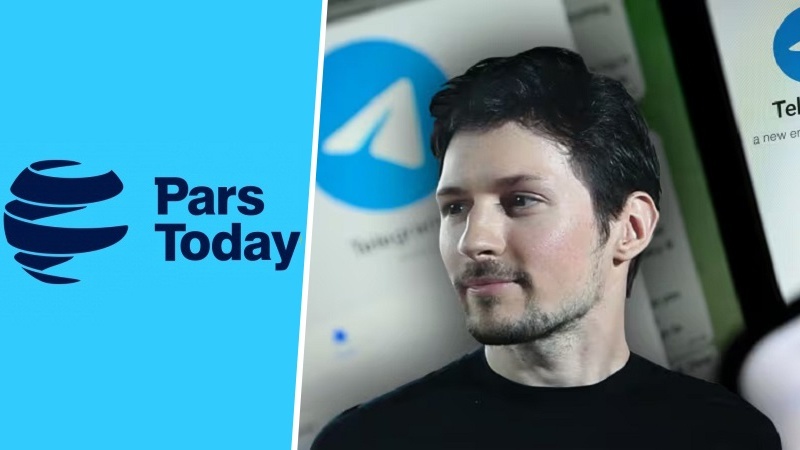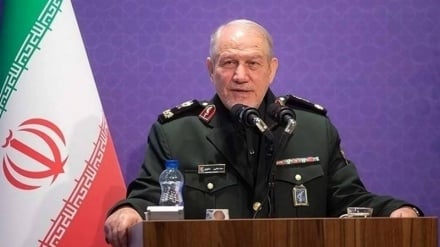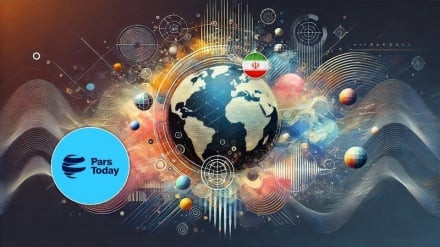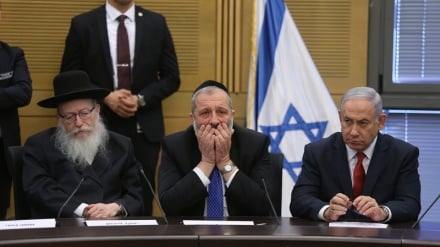Western dominance over social networks with double standards; An analysis of the arrest of Telegram's CEO in Pars Today's interview
Pars Today - With the arrest of Pavel Durov, the CEO of Telegram in France, the West's claims of adhering to individual freedoms and slogans about the need for freedom in society have become even more apparent.
The French government arrested the CEO of Telegram on charges of buying and selling drugs, sexually abusing children, and creating an environment for the spread of terrorism.
According to Pars Today, this arrest has sparked a wave of protests from domestic and foreign critics, with many supporting the French government's actions as a means of protecting European national security, particularly in France.
However, many others have seen this arrest as a double standard against individual freedoms by France and a violation of all the slogans of Paris and the Western world in protecting individual freedoms.
To examine the dimensions of this issue and the topic of freedom in the Western world, we had a conversation with Dr. Rahman Ghahremanpour, a researcher in international relations.
This international relations researcher believes that freedom of expression is a philosophical and deeply rooted issue that has always been a subject of controversy. He said: "The reality is that Western countries have always adopted double standards on the issue of freedom. Now, with the arrest of Telegram's CEO, another aspect of this duality has become apparent."
Social networks, creating monopolies and uncontrollable threats
Dr. Ghahremanpour said about the reason for the West's (France's) confrontation with Telegram's owner at this time: "Sensitivity towards Telegram and social networks has increased with the introduction of artificial intelligence models and the possibility of collecting more user information.
In fact, the owners of these platforms all aim to attract more users, through whom they can obtain more advertising and strengthen their financial base, becoming monopolistic players in various fields. This is contrary to the wishes of Western governments."
Another issue is the widespread and uncontrolled access of users to virtual networks, including Telegram, which has increased the sensitivity of Western countries towards the use of these platforms. Users can now publish their information globally without security concerns, which is a red line for many governments. In fact, through these platforms, governments can no longer easily intervene in various issues and take control.
This international relations expert mentioned examples of the West's, particularly France's, double standards towards freedom: "In France, wearing the burqa is forbidden for women, but isn't it supposed to be based on the principle of freedom that clothing is free for humans? Isn't this a violation of freedom? Another example is the Charlie Hebdo magazine.
In this case, the sanctities of Muslims, who make up a large part of the country's population, were mocked, but no action was taken, and the French government justified it as freedom of expression. In fact, these double standards have always existed in various dimensions in Western countries."
About the conflicting views on freedom of expression in the global arena and the reflection of these views in the behavior of Western governments, Ghahremanpour said: "Two main views have always been considered by Western countries. One view believes that the priority is the collective good, meaning that any platform that is considered harmful by them is subject to pursuit and confrontation. From their perspective, this is not in conflict with democracy, as the collective good is at stake.
As is now emphasized in the arrest of Telegram's CEO, but the opposing view believes that we live in a free world and that supply is done according to demand, and any limitation is a violation of freedom. Supporters of this view now consider France's actions a violation of individual freedoms."
Western countries define the boundaries of freedom in their own interests
Dr. Ghahremanpour said: "It seems that in the current world, governments justify their policies and pursue their interests by using both views, as Facebook did in 2016 by providing information about some of its users to Donald Trump's campaign without their permission, which had a significant impact on Trump's victory in the US presidential election. Now, however, the misuse of the Telegram platform in areas such as terrorism, drugs, and others has provided a pretext for the arrest of Pavel Durov, Telegram's CEO."
Freedom, an ideal
This international relations researcher about the role of power in individual and social freedoms said: "Freedom of expression is an ideal, and in reality, it has always been subject to power. In this regard, one can refer to the Western media's policies towards the Zionist regime's actions against Palestinians. Unfortunately, this is a painful issue that Western media has been ignoring for years, and little news about the inhumane actions of the Zionist regime against Palestinians is reflected."
In other words, in the real world, countries that hold economic and political power are also the players in the media arena. The performance of BBC and CNN in crises and issues of various countries around the world is notable in this regard.
Also, one can refer to the lack of attention from Western media and the lack of real reflection of Israel's crimes in Palestine, disrespect for Islamic religious principles, even burning the Quran, violent confrontations with blacks, and the lack of proper reflection of these events.
About the pressures that Western countries, especially in social and political crises, exert on Iran through the media, accusing Iran of violating freedom, while they themselves have a double standard, even multiple standards, in the issue of freedom, Dr. Ghahremanpour said:
"In fact, the conflict between Iran's political system and Western countries, and Iran's non-compliance with Western policies, has led Western countries to adopt a hostile stance against the Islamic Republic of Iran. They have accused Iran of restricting the use of platforms and violating individual freedoms, while they themselves are now talking more than ever about limiting platforms and the need to control them."
Ghahremanpour said about the role of Western media in international crises over the years: "Western media has always acted as the political arm of governments, serving them and Western policies. In fact, a media war has always been underway, and Western media, backed by economics and in line with Western government policies, have tried to play a role in power equations."
This international relations researcher said about the future of media in the current world, considering new platforms: "It seems that with political changes in the world, the power of media in global politics will also change. As China's power grows, the power of its media in the international arena is also increasing, and now TikTok and Xinhua News Agency are playing a more significant role in the media and competition."
He said about the censorship applied to social networks and the contradictory policies used in the media, such as the example of Martyr Soleimani, the Iranian commander who fought against Daesh terrorism: "In the current world, media has become the authority, and as a result, conflicting interpretations of various concepts have emerged. For example, after 9/11, national heroes of some countries are introduced as terrorists by the Western world, or a criminal is shown to be innocent.
When a monopoly is established, everything is defined according to the power of the monopolist, leading to the alteration of many concepts and the creation of new ones. Moreover, media has often been the cause of hatred and even massacre. In this regard, one can refer to the massacre of Rohingya Muslims, which occurred following the inappropriate posts of a Buddhist monk and the spread of hatred against Islam on Facebook.
Solution: Strengthening and developing infrastructure and skills
Dr. Ghahremanpour concluded by answering a question about what strategies a country like Iran should employ in the current virtual space and with new virtual media: "We need to create the right infrastructure, expand artificial intelligence, and use new technologies in these areas. In fact, we can only compete with these new platforms and the new media space that has been created when we acquire the necessary infrastructure and expertise. This is a topic that the leader of the Islamic Revolution also emphasized in his recent speech.
Key phrases: social networks, Western media, arrest of Telegram's CEO, Pavel Durov, France and Telegram
MG/ME



